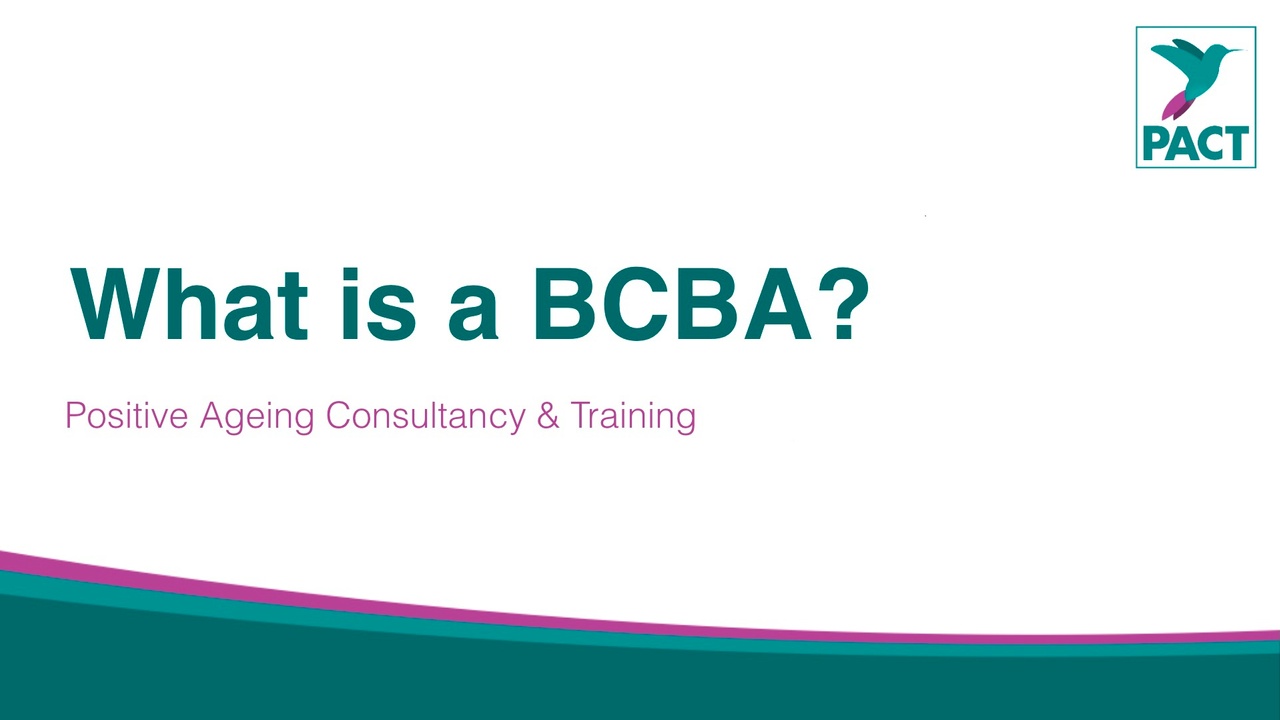What is a BCBA ?
Jul 22, 2021
You might have seen that we are the only BCBA-led behavioural support service for older adults in the UK and be wondering "but what actually is a BCBA?" Well, BCBA stands for Board Certified Behaviour Analyst and below we're going to explain exactly what a BCBA does and how someone becomes a BCBA!
What do BCBAs do?
BCBAs are experts in the analysis of human behaviour and have advanced skills in behaviour change science. They can work with a range of client groups, but usually undertake specialist training to work with one specific group. When a behaviour analyst specialises in work with older adults, they’re referred to as a behavioural gerontologist.
The most common reason that BCBAs receive referrals for in our experience is to support with managing behaviour that challenges in adults with dementia. However, this is just one aspect of the work that we do. We can support with a wide range of issues from increasing engagement and decreasing apathy, supporting with memory loss, training staff and carers, helping someone to remember to use their walking aids or hearing aids, to teaching or reteaching language and communication methods.
Becoming a BCBA
To become a BCBA, a clinician needs to possess a masters degree in Applied Behaviour Analysis (there are only five verified course sequences that meet this criteria in the UK). Then they must complete 2000 supervised hours of clinical practice overseen by an experienced BCBA, followed by passing the BCBA exam. To become a BCBA-D, they must also have a PhD in behaviour analysis. In the UK there are over 400 BCBAs actively practicing with a range of populations such as children with autism, people with learning disabilities, in sports and healthcare and with older adults. Across the world there are over 44,000 BCBAs.
Once a clinician has passed the BCBA exam, they are certified by the Behavior Analyst Certification Board and featured on the BACB registry. To remain certified, they need to complete a cycle of continuing education every two years and their practice must adhere to the Professional and Ethical Compliance Code.
Both of our directors are BCBAs (Dr Lucock is a BCBA-D) and appear on the UK Society for Behaviour Analysis's voluntary register. The register is searchable so consumers can verify the identity of clinicians, their qualifications, their DBS certificate, and their professional indemnity insurance.
Over the coming months we are going to feature some of our work in "success stories" blog posts, so make sure you stay tuned and keep an eye our for those if you want to see examples of what a BCBA can help with for older adults with Alzheimer's and other types of dementia.

